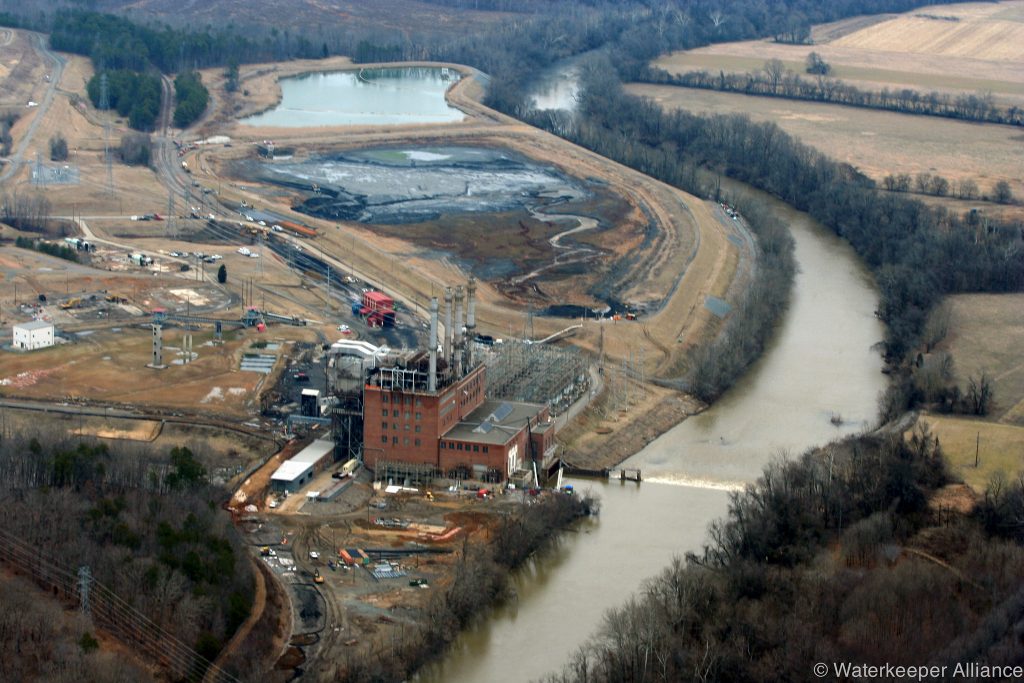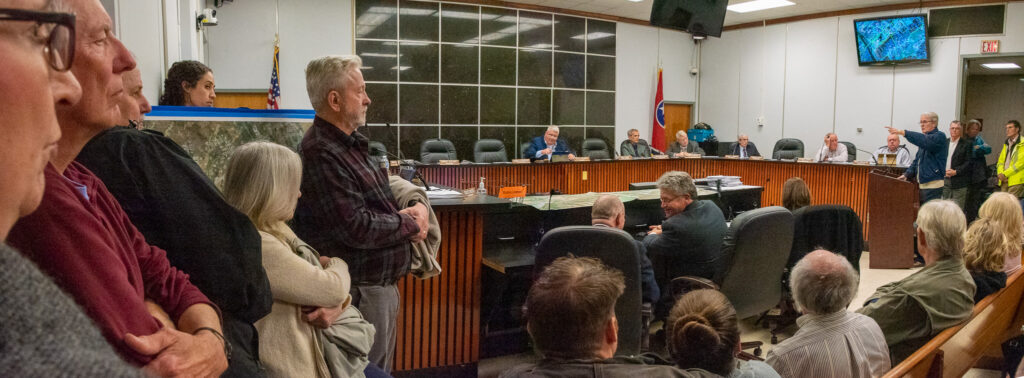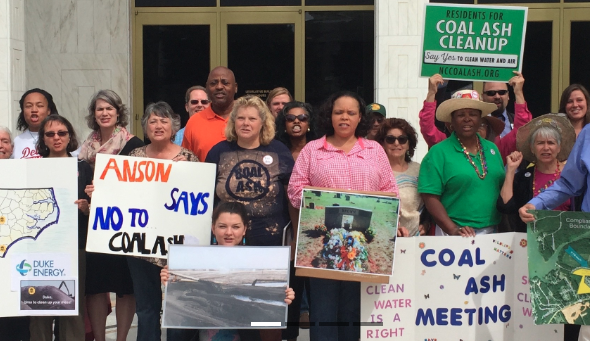Posts Tagged ‘Coal Ash’
Communities call out Duke Energy’s harmful impacts
People from states served by Duke Energy recently testified before the newly formed, independent People’s Commission that the utility’s record on coal ash, electric rates and other issues is harming communities.
Read MoreMember Spotlight: Russ Moxley
River Enthusiast Joins the Appalachian Voices Board
Read MoreFight like hell for the living: Honoring Kingston coal ash workers
Twelve years after the Kingston coal ash spill, hundreds of cleanup workers are sick with lung diseases, blood and brain cancers and other ailments, and families report that as many as 53 workers have died from their exposure to the toxic Kingston coal ash.
Read MoreEPA Finalizes Weakened Coal Ash Rule
The U.S. Environmental Protection Agency’s new rule allows utilities to dump coal ash into unlined pits through April 2021, and some companies may be able to do so for longer.
Read MorePublic Hearing on Kentucky Utilities’ Coal Ash Cleanup Plan
Critics say a plan developed by Kentucky Utilities to address groundwater pollution from an unlined coal-ash pond seeping into Herrington Lake is inadequate.
Read MoreCall for Action Against Coal Ash in Alabama
Environmental groups in Alabama are asking power companies and legislators to move coal ash into lined landfills or recycle it.
Read MoreWorkers Demand Compensation after Kingston Coal Ash Exposure
Sick and dying workers who helped clean up the 2008 Kingston coal ash spill rejected a settlement in April, and are now looking to sue for damages.
Read MoreTennesseans Raise Coal Ash Concerns
Local residents are fighting against the Tennessee Valley Authority’s proposed coal ash landfill in Anderson County, Tenn., while others sued the utility in court over health problems they allege are linked to the Bull Run power plant.
Read MoreBeginning of the End of North Carolina’s Coal Ash Crisis
The multi-year fight to clean up Duke Energy’s toxic coal ash pits in North Carolina has been difficult — but community advocates scored a major victory in January when the state ordered the monopoly utility to excavate its remaining ash landfills.
Read MoreCreating Positive Change: A Note from Our Executive Director
Appalachian Voices Executive Director Tom Cormons speaks on the recent coal ash victory in North Carolina and efforts to bring about a nationwide economic transition for coal communities.
Read More







